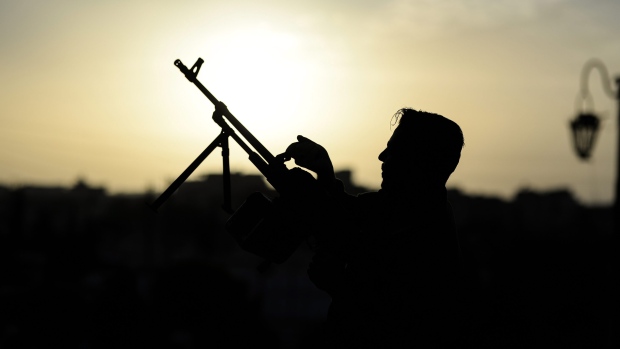Ankara and Moscow agree to a later deadline for the jihadists of Idleb
Turkey and Russia have set Tuesday for an additional delay to the jihadists of the syrian province of Idleb, taking the view that the agreement reached last month in Sochi remained in force despite the expiry, the day before, to its main deadline.
On Monday, the official timeframe for the departure of the fighters and radicals, especially those of Hayat al-Tahrir al-Sham (HTS), the future of the “demilitarized zone” has come to an end. It has not been preceded by any movement or sign of withdrawal prior, casting doubt on the agreement, intended to prevent a new bloodshed in the last great bastion of insurgent Syria.
“According to the information that we receive from our military, the agreement is implemented and the army is satisfied with the way Turkey works”, held on Tuesday, the spokesperson for the Kremlin, Dmitri Peskov.
Him emboitant, the Turkish foreign minister, Mevlüt Cavusoglu, has also wanted to be reassuring.
“There is no concern regarding the withdrawal of heavy weapons (which was fixed for the 10th of October, editor’s note) and there does not seem to have to worry about a withdrawal (…) of some radical groups”, he said.
The agreement russo-Turkish concluded in Sochi (Russia) on 17 September provides a “demilitarized zone” to separate the territories of the regime of Bashar al-Assad of the ones still held by rebels and jihadists.
According to the agreement, heavy weapons, rebel groups and jihadists had to be withdrawn before the 10 October, while the jihadists had until 15 October to leave the buffer zone.
The first deadline has been generally respected, not the second.
– “No withdrawal” –
“We have not observed any withdrawal from, or no patrol in the +dmz+”, said Tuesday to AFP the director of the syrian Observatory Human rights (OSDH), Rami Abdel Rahmane.
And “little sign of a withdrawal, he added.
The “demilitarized zone”, of 15 to 20 km wide, includes, in addition to areas of Idleb, portions of the neighbouring provinces of Aleppo, Hama and Latakia.
It is the responsibility of the Turkish army and the police, Russian military to monitor this area through joint patrols, under the agreement.
To this day, the jihadists of HTS promised to continue the fight.
“We will not abandon our weapons,” he said Sunday, without clearly saying if they rejected the market Ankara-Moscow, after having agreed to withdraw their heavy weapons from the future buffer zone, according to the OSDH.
Analysts see the Russian reaction to an extension, de facto, to the necessary delay in implementation of the second phase of the agreement of Sochi.
“The parties concerned (…) are well aware that it was difficult to implement in the initial time limits,” says Nawar Oliver, a specialist on Syria at the center of reflection Omran based in Turkey.
According to the daily syrian pro-regime Al-Watan, Ankara would have asked “in Moscow to grant him a period of time (extra) to influence the HTS.
On Monday, the head of the diplomacy of syria, Walid al-Mouallem said that his country would “expect” the Russian reaction to the non-withdrawal of the jihadists, recalling, however, that “the armed forces (by the regime) were ready in the area surrounding Idleb”.
– “Leeway” –
To justify the grace period, the experts suggest, in addition to the existence of a “margin of manoeuvre” own the content of the agreement.
It does not mention the groups of jihadists, namely, simply designate all “radical” groups. It does not explicitly model the mechanism of monitoring of the second component — critical– of the agreement.
Regarding HTS, two trends seem to coexist, as noted by the experts: the first supports the agreement of Sochi, while the second, more radical, reject it.
A recent report by the centre Omran advance in this regard that the branch to be “moderate”, headed by the current head of HTS Mohammad al-Joulani, “has made its willingness to integrate the Form of national liberation (FNL),” a coalition of rebel groups, pro-Ankara has endorsed the agreement.
According to Nicholas Heras, a researcher at the Center for a New American Security, Ankara must now step up its action.
Turkey has deployed “until then no effort to keep groups jihadists of Idleb, or the demilitarized zone,” he said. It raises questions about his “real intention to put an end to the refuge area which benefits al-Qaeda in Syria,” judge M. Heras.
Triggered in 2011, the war in Syria has already done more than 360,000 people dead, while more than half of the population has been displaced or had to leave the country.
Source: Syria: Ankara and Moscow agree to a later deadline for the jihadists of Idleb | The Koz Post

